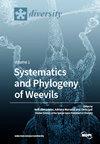Characteristics of Grassland Plant Community Change with Elevation and Its Relationship with Environmental Factors in the Burqin Forest Region of the Altai Mountains
IF 2.1
3区 生物学
Q2 BIODIVERSITY CONSERVATION
引用次数: 0
Abstract
The change grassland plant communities demonstrate with elevation has been one of the hot issues in ecological research, and there remain many unsolved problems. In order to further elucidate the rules of grassland plant community change with elevation, this study took the Burqin forest area as a research object, using field survey, redundancy analysis and grey correlation analysis to comprehensively assess the characteristics of change in grassland plant communities with elevation and the relationship of this evolution with environmental factors. The results showed that (1) the numbers of species, community biomass, community cover and community densities of grassland plant communities showed an “M” pattern with the increase in elevation. There were significant changes in the importance values and dominance of plants at different elevations; with increasing elevation, grassland plants became primarily dominated by cold-tolerant and well-adapted perennials. (2) The similarity coefficients of grassland plant communities at different elevations ranged from 0.06 to 0.62, i.e., from very dissimilar to moderately similar. (3) As the elevation increased, the Margalef species richness index, Shannon–Wiener diversity index, Simpson dominance index and Alatalo evenness index all showed an “M” pattern trend. (4) The degrees of correlation between temperature and precipitation and community biomass and species diversity were at a high level, and these were the most important environmental factors affecting the biomass and species diversity of grassland plant communities in the Burqin forest area. The results of this study can provide a theoretical basis for the rational utilization of grassland resources and for the sustainable development of grassland ecosystems in the Burqin forest area.阿尔泰山布尔沁林区草地植物群落高程变化特征及其与环境因子的关系
草地植物群落随海拔的变化一直是生态学研究的热点问题之一,但仍有许多未解决的问题。为了进一步阐明草原植物群落随高程变化的规律,本研究以布尔沁林区为研究对象,采用野外调查、冗余分析和灰色关联分析等方法,综合评价草原植物群落随高程变化的特征及其与环境因子的关系。结果表明:(1)随着海拔的升高,草地植物群落的物种数量、群落生物量、群落盖度和群落密度均呈“M”型格局。不同海拔高度植物的重要性值和优势度变化显著;随着海拔的升高,草地植物以耐寒、适应性强的多年生植物为主。(2)不同海拔高度的草地植物群落相似系数在0.06 ~ 0.62之间,即从非常不相似到中等相似。(3)随着海拔的升高,Margalef物种丰富度指数、Shannon-Wiener多样性指数、Simpson优势度指数和Alatalo均匀度指数均呈“M”型趋势。(4)温度、降水与群落生物量和物种多样性的相关程度较高,是影响布尔沁林区草地植物群落生物量和物种多样性的最重要环境因子。研究结果可为布尔沁林区草地资源的合理利用和草地生态系统的可持续发展提供理论依据。
本文章由计算机程序翻译,如有差异,请以英文原文为准。
求助全文
约1分钟内获得全文
求助全文
来源期刊

Diversity-Basel
Environmental Science-Ecological Modeling
CiteScore
3.40
自引率
12.50%
发文量
925
审稿时长
11 weeks
期刊介绍:
Diversity (ISSN 1424-2818) is an international and interdisciplinary journal of science concerning diversity concept and application, diversity assessment and diversity preservation. It is focused on organismic and molecular diversity. It publishes reviews, regular research papers and short notes in the regular issues. Related news and announcements are also published. Our aim is to encourage scientists to publish their experimental and theoretical results in as much detail as possible. Therefore, there is no restriction on the length of the papers. Full experimental details must be provided so that the results can be reproduced.
 求助内容:
求助内容: 应助结果提醒方式:
应助结果提醒方式:


